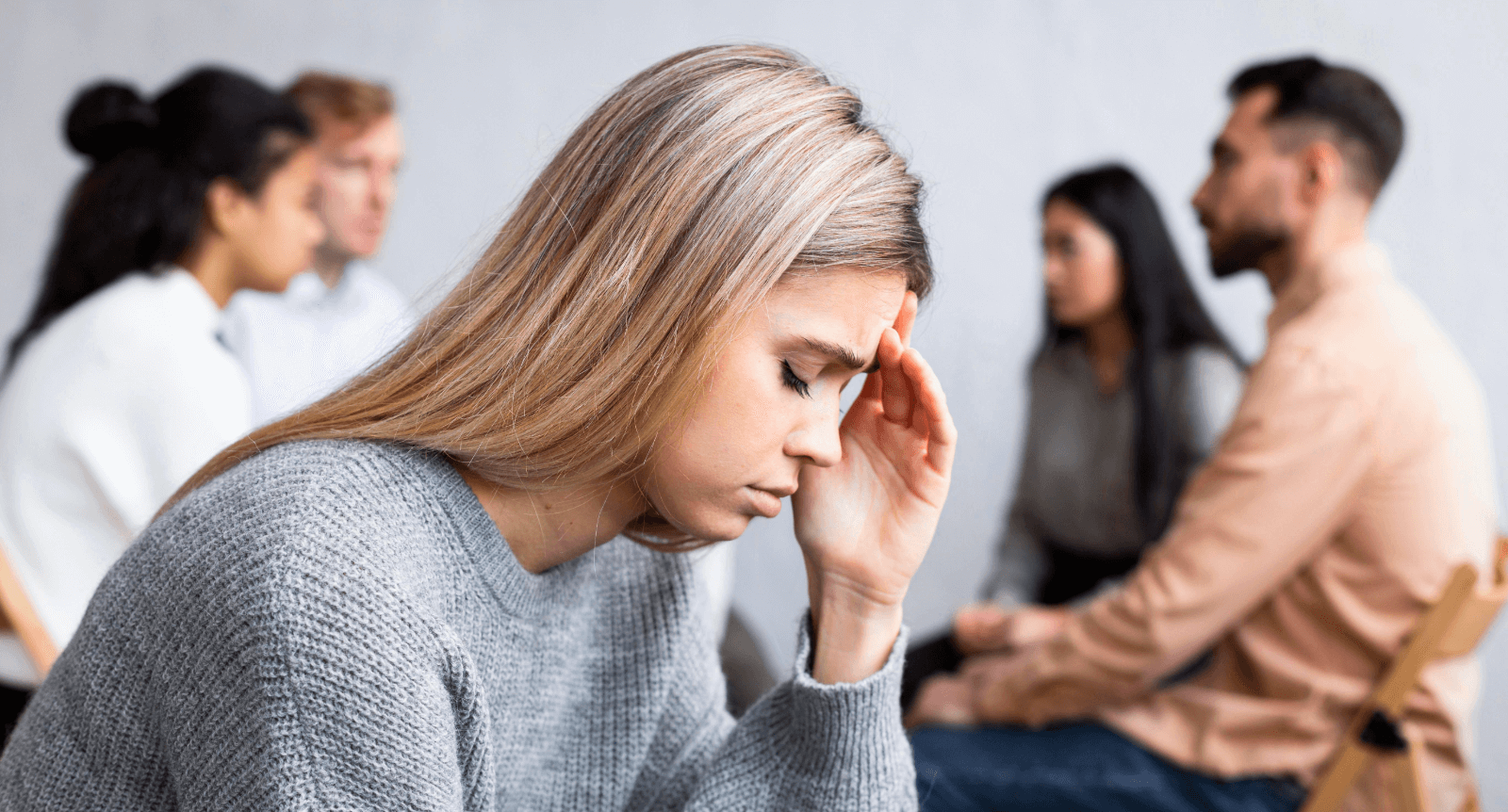Research-driven counselling for anxiety with compassionate guidance
Research-driven counselling for anxiety with compassionate guidance
Blog Article
Checking Out Various Methods in Coaching for Anxiousness Problem for Long Lasting Adjustment
When tackling stress and anxiety problems, it's necessary to discover a variety of counseling strategies. Each method uses unique insights and tools to assist you handle your signs successfully. You could find that integrating methods can generate the very best results. However, recognizing the nuances of these techniques is key to cultivating lasting change. Suppose the appropriate combination could release a brand-new level of emotional wellness for you?
Comprehending Anxiety Conditions: A Quick Overview
Stress and anxiety problems, which affect countless people worldwide, can significantly affect life. You might experience overwhelming feelings of concern or fret that seem irrepressible. These feelings can result in physical signs like a racing heart, sweating, and even lightheadedness. Typical types of stress and anxiety conditions include generalised anxiousness condition, panic disorder, and social anxiousness condition. Each has distinct signs, yet they all share a tendency to disrupt your regular and relationships.Understanding the source of your anxiety is essential. It may stem from genes, brain chemistry, or life experiences. Identifying your triggers can assist you handle your actions much better. It's crucial to bear in mind that you're not the only one in this struggle. Lots of people encounter similar challenges, and looking for assistance is a solid step toward sensation better. By learning more about stress and anxiety problems, you're already on the course to understanding and managing your problem a lot more effectively.
Cognitive-Behavioral Treatment: Challenging Adverse Thought Patterns

Determining Adverse Idea Triggers
Acknowledging the certain triggers behind your adverse ideas can be essential in managing stress and anxiety when you run into moments of distress. Beginning by paying attention to circumstances that prompt sensations of fear or worry. Is it a jampacked area, a future deadline, or a discussion with particular people? Write down these instances in a journal. This will help you recognize patterns in your thinking. Notice physical feelings that accompany your negative ideas, like a racing heart or rigidity in your upper body. By identifying these triggers, you gain insight right into what's fueling your anxiety. Understanding these links is the initial step in challenging those thoughts and ultimately regaining control over your psychological actions.

Replacing Ideas With Positives
Testing adverse thought patterns is a necessary action in transforming your way of thinking and decreasing anxiousness. You might typically locate yourself trapped in cycles of self-doubt or disastrous thinking. Instead of letting these thoughts dictate your feelings, method changing them with favorable affirmations or realistic choices. When you believe, "I can't handle this," move it to, "I can handle difficulties one step at a time." This easy modification can greatly influence your psychological state. On a regular basis recognizing and responding to these adverse ideas aids develop a much healthier interior dialogue. Keep in mind, it takes some time and initiative, yet continually practicing this technique can result in long-term change, encouraging you to encounter stress and anxiety with restored confidence and durability
Structure Coping Methods Together
Replacing negative ideas is only the start of handling stress and anxiety successfully. To develop lasting adjustment, you require to construct coping strategies that equip you. Cognitive-Behavioral Treatment (CBT) aids you identify and challenge those purposeless thought patterns. With each other, you and your therapist can discover exactly how these thoughts impact your feelings and behaviors.Start by creating functional techniques, like journaling or mindfulness workouts, that allow you to challenge stress and anxiety head-on. When you face your concerns gradually, you'll discover to react in different ways.

Mindfulness and Acceptance-Based Approaches: Cultivating Present-Moment Recognition
As you browse the complexities of anxiousness, including mindfulness and acceptance-based strategies can significantly boost your capability to grow present-moment awareness. By concentrating on the right here and now, you'll discover that you can observe your ideas and sensations without judgment. This method assists you acknowledge your anxiety without really feeling overwhelmed by it.Engaging in mindfulness workouts, such as deep breathing, body scans, or guided meditations, permits you to ground yourself in your current experience. Acceptance-based approaches motivate you to embrace your emotions instead than battle versus them. When you approve your feelings, they lose their power over you.Incorporating these practices into your daily regimen can change just how you respond to anxiousness. You'll establish resilience and discover to browse stressful circumstances with greater convenience. Ultimately, cultivating present-moment understanding lays the structure for long-term modification, empowering you to lead a much more fulfilling life.
Direct Exposure Treatment: Confronting Worries Progressively
Exposure treatment helps you confront your worries in a steady method, making it less overwhelming. You'll find out strategies to face anxiety-provoking circumstances detailed, while additionally building coping techniques to manage your reactions. This technique equips you to take control and lower anxiety in time.
Progressive Direct Exposure Methods
When encountering stress and anxiety, slowly challenging your anxieties can be a powerful way to restore control. This technique, recognized as steady exposure, includes gradually revealing on your own to the circumstances or objects that cause your anxiousness. Begin with less challenging situations and slowly function your method up to more tough ones. If you're terrified of public speaking, you might start by speaking in front of a mirror, then progress to sharing thoughts with a close friend, and ultimately address a small group. Each action helps desensitize you to the worry, constructing your confidence gradually. Remember, it's crucial to pace yourself and commemorate tiny victories as you move with this procedure, reinforcing your capability to manage stress and anxiety properly.
Building Coping Approaches
Building reliable coping techniques is essential for handling anxiousness, particularly as you challenge your fears progressively. One powerful approach is exposure treatment, where you begin by facing your worries in a regulated manner. Begin with much less intimidating circumstances and gradually function your means approximately even more tough circumstances. This steady direct exposure helps desensitize you to anxiety sets off, making them less overwhelming.Incorporate relaxation techniques, such as deep breathing or mindfulness, to calm your mind during direct exposure. Track your progress, commemorating tiny triumphes in the process to improve your self-confidence. Bear in mind, it's alright to take your time; the objective isn't perfection however steady renovation. By building these strategies, you'll encourage on your own to navigate anxiety and welcome life a lot more completely.
Psychodynamic Therapy: Revealing Origin of Anxiety
Psychodynamic treatment checks out the unconscious mind, disclosing the root causes of your anxiousness - Counseling services for anxiety. By examining your thoughts, feelings, and previous experiences, this approach aids you uncover underlying problems and unsettled issues that might contribute to your present anxiety. You'll collaborate with a therapist to explore youth experiences, relationships, and psychological patterns that shape your actions today.As you gain understanding into these deeper layers of your psyche, you'll begin to acknowledge how previous events affect your existing habits. This understanding can bring about catharsis, enabling you to process feelings you may have suppressed.Through the restorative connection, you can also recognize protection systems that may have established over time, providing a more clear path to change. Eventually, psychodynamic therapy outfits you with the devices to address your anxiety at its core, promoting lasting transformation in your psychological well-being
Integrative and Alternative Strategies: Integrating Techniques for Greater Effectiveness
Integrating different healing methods can enhance your journey towards handling anxiety better. By incorporating elements from cognitive-behavioral therapy, mindfulness techniques, and alternative strategies, you can produce a customized technique that addresses your distinct requirements. As an example, you might utilize cognitive-behavioral techniques to challenge negative idea patterns while incorporating mindfulness workouts to ground on your own in today moment.Additionally, checking out alternative practices such as yoga or meditation can promote leisure and reduce anxiety symptoms. This blend enables you to establish higher self-awareness and resilience.Experimenting with these diverse methods can help you discover what reverberates most with you. Keep in mind, it's regarding locating a harmony that works, rather than staying with a single technique. This integrative method not just uses prompt relief but likewise fosters long-term skills for taking care of anxiety, encouraging you to recover control over your life.
The Role of Support Solutions: Building Durability With Connection
While it may seem that taking care of stress and anxiety is a solitary journey, having a solid support group can play a necessary duty in your durability. Surrounding yourself with compassionate good friends, family, or support system creates a safe room where you can openly share your experiences and sensations. You advise on your own that you're not alone in this struggle.These relationships offer support and can give practical coping techniques that have actually functioned for others when you attach with others. It's additionally a chance to gain perspective; close friends can help you see situations in a different way, minimizing sensations of isolation.Moreover, emotional support promotes a sense of belonging, which can considerably relieve anxiety symptoms. By leaning on your support system, you can build resilience and tackle difficulties better. Keep in mind, connecting for assistance suggests toughness, and it can make all the distinction here in your journey toward managing anxiety.
Frequently Asked Questions
What Are the Typical Signs And Symptoms of Anxiousness Problems?
You could experience uneasyness, exhaustion, trouble focusing, irritability, muscle mass stress, and rest disruptions. Physical signs can consist of rapid heartbeat, sweating, and trembling. Acknowledging these indicators early can assist you seek suitable support and therapy.

How Much Time Does Therapy Commonly Last for Anxiety Conditions?
Treatment for stress and anxiety disorders usually lasts anywhere from a couple of weeks to several months. It really depends upon your specific requirements, progress, and the methods your specialist makes use of to help you manage your anxiety properly.
Can Drug Be Utilized Together With Therapy for Anxiousness?
Yes, drug can absolutely be utilized together with therapy for stress and anxiety. Integrating both strategies often enhances therapy effectiveness, helping you take care of symptoms while checking out underlying concerns with counseling. Constantly consult your doctor for customized recommendations.
Are There Self-Help Techniques for Managing Stress And Anxiety?
Yes, there are several self-help strategies for handling anxiety. You can exercise mindfulness, engage in routine exercise, maintain a well balanced diet regimen, establish a regular, and utilize deep breathing techniques to help in reducing anxiousness signs successfully.
Just how Do I Know if I Required Expert Help for Stress And Anxiety?
You must take into consideration looking for professional aid for anxiousness if it disrupts every day life, causes substantial distress, or if self-help strategies aren't working. Count on your reactions; connecting can lead to far better coping skills and assistance. Usual types of anxiousness problems consist of generalised stress and anxiety disorder, panic disorder, and social anxiousness problem. When you encounter moments of distress, recognizing the particular triggers behind your unfavorable thoughts can be important in handling anxiety. Changing unfavorable thoughts is only the start of handling anxiety properly. By examining your thoughts, feelings, and previous experiences, this method aids you uncover underlying problems and unsolved issues that may add to your existing anxiousness. It's likewise an opportunity to get perspective; pals can help you see circumstances in a different way, lowering feelings of isolation (Counseling services for anxiety).Moreover, psychological assistance fosters a sense of belonging, which can greatly relieve anxiety symptoms
Report this page